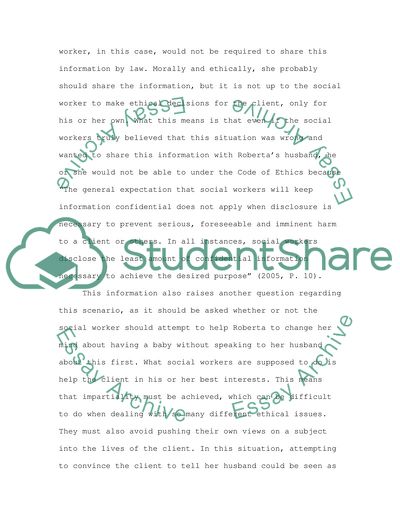Cite this document
(Code of Ethics - the Bond of Confidentiality in Activity of Social Wor Case Study, n.d.)
Code of Ethics - the Bond of Confidentiality in Activity of Social Wor Case Study. Retrieved from https://studentshare.org/ethics/1710119-application-of-the-canadian-association-of-social-workers-code-of-ethics-2005-to-an-ethical-dilemna-in-a-practice-setting
Code of Ethics - the Bond of Confidentiality in Activity of Social Wor Case Study. Retrieved from https://studentshare.org/ethics/1710119-application-of-the-canadian-association-of-social-workers-code-of-ethics-2005-to-an-ethical-dilemna-in-a-practice-setting
(Code of Ethics - the Bond of Confidentiality in Activity of Social Wor Case Study)
Code of Ethics - the Bond of Confidentiality in Activity of Social Wor Case Study. https://studentshare.org/ethics/1710119-application-of-the-canadian-association-of-social-workers-code-of-ethics-2005-to-an-ethical-dilemna-in-a-practice-setting.
Code of Ethics - the Bond of Confidentiality in Activity of Social Wor Case Study. https://studentshare.org/ethics/1710119-application-of-the-canadian-association-of-social-workers-code-of-ethics-2005-to-an-ethical-dilemna-in-a-practice-setting.
“Code of Ethics - the Bond of Confidentiality in Activity of Social Wor Case Study”. https://studentshare.org/ethics/1710119-application-of-the-canadian-association-of-social-workers-code-of-ethics-2005-to-an-ethical-dilemna-in-a-practice-setting.


